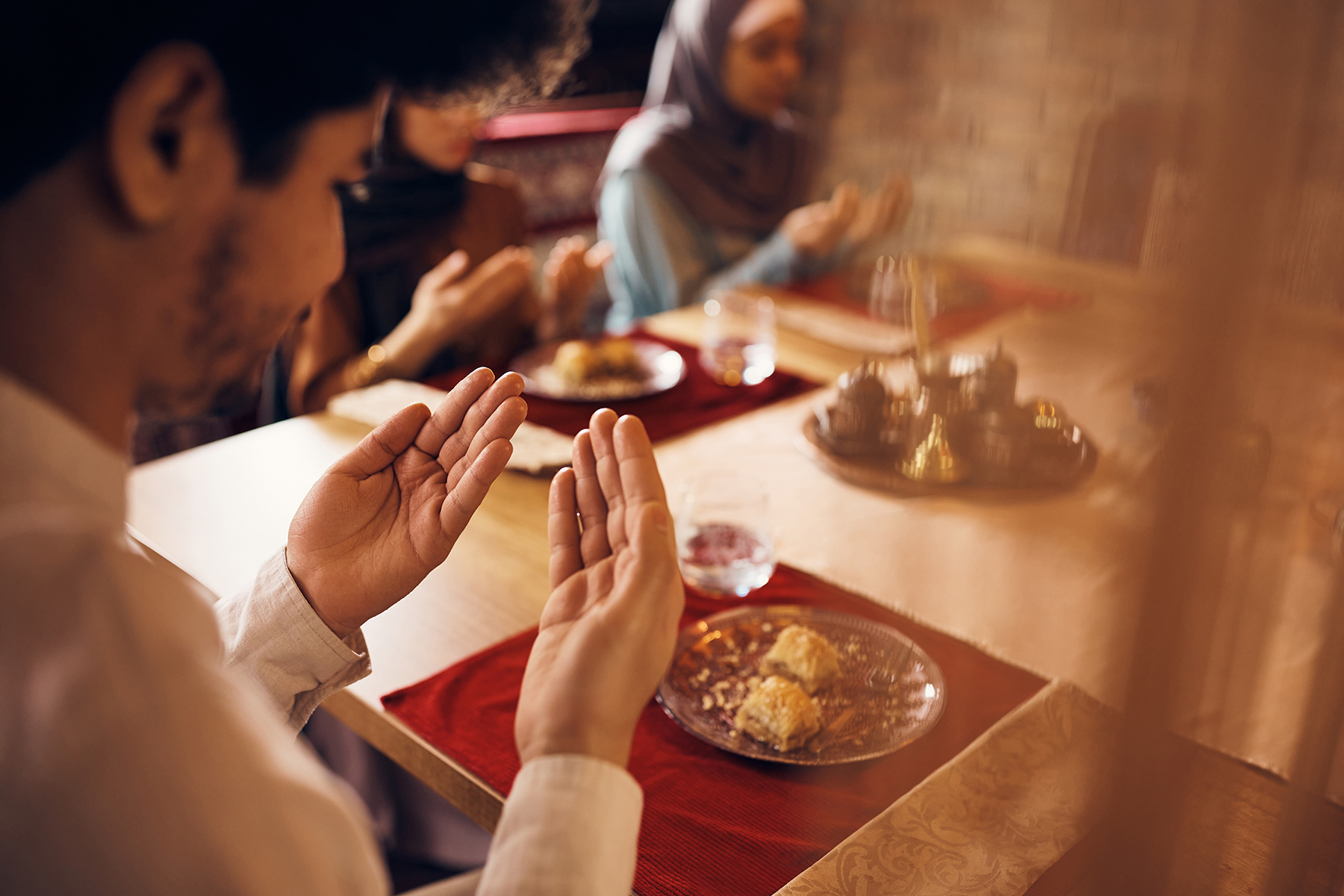The holy month of Ramadan, which falls on the ninth month of the Islamic Hijra calendar, is often seen as a time to practice self-control, sacrifice, and empathy for the less fortunate. It is a month of contrasts: celebration as well as reflection and measured abandon as well as strict discipline. It’s also a time of great feasts: from each evening’s Iftar (sunset feast) to Suhoor (early morning feast) accompanied by exciting Ramadan dining deals and offers in restaurants and cafes throughout the month.
For many, it is the traditional foods from childhood, feasts with friends and families gathering around the table that bring memories flooding back. Make this Ramadan a healthy and a happy memory for your children to look back upon.
There is evidence to suggest that fasting can have positive effects on your health and well-being:
Regulates ‘bad’ cholesterol
A recent study found that fasting affects the lipid profile. This results in reduced blood cholesterol, which can keep heart attacks, strokes, and other diseases at bay.
Curbs appetite
Observing Ramadan and fasting give your lifestyle and digestive system a positive u-turn. As your body gets used to eating less, your digestive system gets a chance to rest and your stomach gradually shrinks in size. This reduces your appetite, and the results can last longer than many trendy diets.
Detoxifies
Fasting not only uses your fat reserves, but also cleanses your body of harmful toxins that might be present in fat deposits. With the digestive system on a month-long overhaul, your body naturally detoxifies, giving you the opportunity to continue a healthier lifestyle beyond Ramadan.
Boosts mood and mental clarity
Fasting can be a method of ‘supercharging’ the brain, increasing growth and development of new brain cells, in turn sharpening responses to information around us.

Ways to help improve your health during Ramadan:
1. Have a healthy Iftar
Traditionally, breaking your fast with dates which are packed with fiber, potassium, magnesium, and fructose, helps aid digestion and replenishes your body’s blood sugar levels. Light soup is a great choice to start your main Iftar meal as well as fruits and vegetables such as watermelon, squash or spinach: these mostly contain water which helps replace fluids. Bananas are also soothing to the stomach and are slow energy releasing. Dates and bananas also help avoid muscle cramps.
Take it easy with the amount of heavy, creamy, and fried foods, as well as salty and sugary dishes. Consider opting for fish and leaner cuts of meat, wholegrain or brown rice and pasta – as well as remembering to include your greens! Taking your time while eating, and keeping an eye on portion control will also help aid digestion and prevent weight gain.
2. Make Suhoor wholesome
Balance your Suhoor with nutrient-rich food like oatmeal, cheese, labneh, fruits, and vegetables. Certain foods with lower glycemic index (low GI) including oats, quinoa, multigrain and wholegrain breads, hummus and yoghurt are good options as they release energy slowly throughout the day.
3. Stay hydrated
Adults, on average, need 2-3 liters of water each day so make sure to drink plenty of water, milk, laban, and fresh juices rather than tea and coffee to provide your body with enough hydration to keep you going.
4. Eat, rest, and exercise strategically
Planning your activities and meals after breaking your fast will refuel you and prepare you for the next day of fasting. Studies on weight loss/gain during Ramadan have shown that energy intake remains the same or increases, despite a decrease in meal frequency. Remaining active helps reduce fatigue, gives your body the strength to keep going, and is a good opportunity to lose weight if needed. It’s best to exercise just before Suhoor, or a few hours after Iftar to make the most of your workouts.
5. Pick up healthy habits (and drop the unhealthy ones)
Ramadan is also a chance for you to quit addictions like smoking or sugar. It’s a good time to slowly decrease your dependency on tea, coffee, and fizzy drinks.
The month of Ramadan is a great opportunity to focus on bringing back a balanced and healthy lifestyle in your life. Wish you all a happy and healthy Ramadan, and may Allah (SWT) bless you for your efforts. Ramadan Mubarak!




